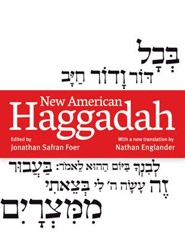Foer movingly captures Oskar’s breathy sentence rhythms, the onrush of independent clauses that fold in his favorite French phrases (raison d’être), American slang (“weird,” “jose,” as in no way … ), and euphemisms (“shitake”), and his sudden stopped conversations (“what the”) that follow from confusion or coming too near painful truths, as he tries to ward off nightmares and extend fantasies that might reclaim some part of his father from death. At once hysterically funny as well as sad, and wonderfully evocative of the world of a gifted child whose collection of arcane facts amazes everyone he meets – Stephen Hawking and Jane Goodall write to him — the narrative moves in alternating shifts of time and place – New York, Dresden — that may at times prompt rereading but that ultimately converge in unexpected and satisfying ways.
Intuitively sensitive to the disorder and sorrows of others, Oskar gets grownups to talk to him and participate in his quest to find out about a key he has accidentally discovered in an envelope marked “Black” in his father’s closet. His secret search, conducted under the unknowing but watchful gaze of his caring mother and adoring paternal Grandma, who lives across the street, and whom he has set up with a walkie-talkie (their exchanges are downright delicious), proceeds alongside unsent letters to Oskar from Grandma, whose husband left her when she was pregnant with Oskar’s father because, after Dresden, he could no longer live and love — everyone and everything had gone up in flames in 1945, and he stopped talking, lived with animals, and began to communicate only by writing notes and turning up tattooed hands, marked Yes and No. There are also letters from Grandpa, which he never sent, to his unborn child, Thomas, Oskar’s father, which explain his futile attempt in the New World to find a new life by marrying Grandma, the younger sister of his dead beloved, whom he met again by chance in a Columbian bakery on Broadway. With amazing grace, Foer adroitly brings together people, in a brief history of time, who try tentatively and tenderly to be.





